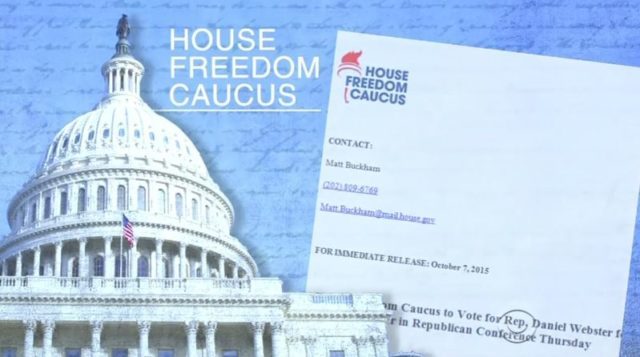French Presidential Campaign: Why It Matters
Why should you be interested in the French presidential campaign? Because it might as well be going on next door to you. We are facing the same major challenges in a similar state of confusion. The differences are circumstantial, the stakes are the same. Life, liberty and the pursuit of happiness. Liberté, égalité, fraternité. Our freedom is on the line.
Besides, this cliffhanging French campaign is a fascinating mixture of Shakespear, Greek tragedy, soap opera, and courtly intrigues.
First, a brief summary of the overall situation:
The incumbent Socialist president, François Hollande, didn’t dare run for reelection. His 5 year-term has been a disaster, the Socialist party is in a shambles, the winner of the (Belle Alliance Populaire) primary, Benoît Hamon, is a Kinder Surprise with goodies for all the small people paid for by the Big Bad Rich. He has no chance of getting to the 2nd round. ID: Socialist
The callow 38 year-old Emmanuel Macron, generally assumed to make it past the first round (April 23) to confront and defeat Marine Le Pen in the second round (May 7), is running on a vacuous Somewhat Right Somewhat Left platform. How did the fabulously unpopular François Hollande manage to place his alter ego in pole position while standing aside in studied absence as the cream of the Socialist party boards Macron’s cruise ship? ID: En Marche
François Fillon, who served for five years as Nicolas Sarkozy’s prime minister, came out of the Primaries (Right and Center-Right) with a strong mandate, upsetting the media’s favorite Alain Juppé, and polling above Macron and Le Pen. Then, out of the blue, Fillon was hit with a sensational smear campaign and a judicial ton of bricks that would have crushed a weaker constitution. The character assassination putsch against Fillon is the centerpiece of an extraordinarily dramatic campaign. It will be treated briefly below and more amply in Part 2 of this ongoing series. Fillon’s platform is built on a Thatcherite revolution aimed at releasing France from decades of stagnation and double digit unemployment, and a resolute combat against Islamic Totalitarianism at home and abroad. ID: Les Républicains.
And then there is Marine Le Pen. ID: Front National
The top issue on the list of voter preoccupations in February, whether expressed directly or indirectly, was Islam. They wanted to know where candidates stood on the question. Would it be sweet submission or tough resistance? Instead of the issue-based campaign they clearly wanted, voters have been dragged into the quicksand of moralizing purification-aimed at eliminating François Fillon-and thrown a lifesaver attached to the gossamer rope of the Little Prince Emmanuel Macron.
The Polls
The one thing we cannot know before the 7th of May is the name of the winner. We don’t even know which of the current frontrunners-Le Pen, Macron, Fillon- will make it to the second round. Despite constant reminders of recent prediction flops, commentators are hooked on the fortune-teller syndrome. They watch Marine Le Pen and Emmanuel Macron peddle uphill and careen around hairpin curves as if it were the Tour de France. Last week the media thought they had pushed François Fillon over a cliff and into the abyss, but he held firm. He’s only a few points behind the other two…in the polls, that is. Big Data Analysis gives a different picture, substantially more favorable to Fillon. But that’s not the media’s storyline…
So what about Marine Le Pen? Isn’t she the fourth act of the Trump/Brexit/Wilders divine surprises?
Marine Le Pen’s reputation as The Anti-Islamization Candidate goes back to the early 2000s, when she forcefully expressed the exasperation of the lower classes that were bearing the brunt of Islamic encroachment on French society. Immediately branded as xenophobe, Islamophobe, and racist she turned the disapproval into an advantage, gathered steam, and racked up a series of impressive electoral results. The Front National went from pariah to legitimate party. And Le Pen was handed ownership of anything that could be deemed hostile to Islam. Whenever a politician takes a stand on issues of immigration, Islam, law and order, or homegrown jihadis, he is accused of leaning to the far right, picking issues off the National Front’s plate, disgracing himself…
Foreign media have generally relayed this caricature, fueling widespread ignorance of other aspects of Marie Le Pen’s program and her embryonic party’s structural weaknesses.
Desperate to burnish her foreign policy credentials, Le Pen found no better destination than Lebanon. She opted out of an audience with the Mufti, by refusing to wear a veil. This put her head and shoulders above the Swedish ladies wrapped in hijab that had paraded in front of Iranian president Rohani as if they were merchandise at a slave market. She did not, however, veil her defense of Bashir al Assad, “the only solution for Syria,” or dissimulate her good relations with Michel Aoun, the Christian outsider that became an insider by making an alliance with Hezbullah. Madame Le Pen graciously suggested she might exempt French-Lebanese from her promised ban on extra-European dual nationality. How about French-Israelis? Hardly! Marine Le Pen wants French Jews to sacrifice the kippa in support of an across the board prohibition of religious garb in public. Her envoy, Nicholas Bay, was snubbed during a recent foray into Israel. The presidential candidate herself did not get any further than the Trump Tower coffee shop on a “recreational” weekend in New York.
The Assad connection is longstanding. Marine Le Pen’s friend and associate Frédéric Chatillon, handles PR for both the National Front and Assad. Her father Jean-Marie badmouthed Muslims domestically while entertaining a close friendship with Saddam Hussein. I reported extensively in 2014 on the dubious alliances of the National Front.
The European Union accuses National Front eurodeputies of fraudulent use of EU parliamentary assistant salaries for a total of close to a million euros. Frédéric Chatillon is under investigation for tricky: campaign financing, Marine Le Pen is accused of faulty financial declarations, her cabinet chief is also under investigation and that’s just the tip of an iceberg that has virtually no effect on her faithful supporters. Nevertheless, the sudden flurry of activity on cases that have dragged on for years is questionable. As is the absence of coverage of the party’s unsavory dealings with neo-Nazis and Islamic Jew haters.
Under Marine Le Pen’s leadership, emphasis has been subtly shifting the from Islam to the economy, with a French brand of national socialism: restored sovereignty, protected borders, increased welfare benefits and jobs for the French-French, zero immigration, law & order at home, no foreign entanglements abroad. Her rhetoric is anti-capitalist, anti-American, anti-globalization and, of course anti-EU. She promises a referendum to get France out of the EU and the Eurozone; if voters choose to remain, she will resign.
Sloppy comparisons with the unexpected victory of Donald Trump in the U.S. ignore the fact that Trump was able to hitch the Republican Party to his runaway wagon; Marine Le Pen rules over a heteroclite skeleton party that can’t be fleshed out by alliances-all the other parties are devils in FN theology. If she does make it to the second round, she has virtually no chance of winning and no hopes of forming an operational government. The idea that hordes of politicians from the Parliamentary right would pour into her administration is far-fetched.
Emmanuel Macron is a former banker (Banque Rothschild) who served as François Hollande’s Minister of the Economy while freelancing as the founder of En Marche [On the go], a movement that wears his initials like a signet ring. Never before elected to public office, Macron teased his movement into a presidential election machine. He is now jockeying with François Fillon for 2nd position… the polls again. In a cheap version of Richard the Something, Macron made an end run around Manuel Valls, who remained the faithful Prime Minister while Hollande delayed announcing he wouldn’t run for reelection. Subsequently defeated in the primaries, Valls stands back while Socialists big and small go over to Macron. I expect François Hollande will join them at the opportune moment.
Macron is the feel good candidate. Just enough labor reform to look modern, a heavy dose of welfare to reassure the weak and make the strong feel generous. He talks high tech, floats a few inches above the ground, throws out ideas like flowers to lovely maidens, does Black is Beautiful photo-ops and makes affirmative action commitments in the banlieue, visits a police station to show he knows people want security, and declares, in Algeria, that the French colonization was a “crime against humanity.” That was followed by a rally in a Front National stronghold with a large population of “pieds noirs,” former French residents of Algeria, where he unashamedly declared “Because I want to be president, I hear you, I love you.” (borrowed from Général de Gaulle). Macron ruffled feathers with a hymn to multiculturalism: “There is no French culture, there is a culture in France.” That was followed by a long-winded exposé of his “Liberté, égalité, fraternité” project for France.
On his way back from Algeria, the startup candidate stopped in London where he addressed an enthusiastic crowd of expats. In a shocking feat of erroneous reporting, The Guardian turned Macron’s Algerian bomb into a modest statement that “human rights abuses” were committed during the colonization of Algeria. No, my friends, he said “crime against humanity.” We heard elsewhere that the British government was not pleased by Macron’s invitation-extended in front of 10 Downing Street-to bankers, engineers, scientists, and other desirables fleeing the Brexited UK to settle in France.
Melodrama
February 22: 4-time defeated presidential candidate François Bayrou solemnly declared: “l’heure est grave” [the situation is serious]. The long-winded, pedantic, moralizing politician-professor performed a public act of abnegation-he wouldn’t be running for president-and heroically offered an alliance with Emmanuel Macron. Who immediately accepted. Bayrou maintains his hallmark pose of disinterested superiority: He never seeks fame, fortune, power or prerogatives. His mission is to save the nation from electing someone other than himself or a candidate he has sanctioned. Will he be an addition or a subtraction to Macron’s campaign? I wouldn’t be surprised to see him pull out before mid-April. But I might be wrong.
François Fillon
We can safely assume that François Fillon has not been accused of corruption at any point in his 36-year political career; if he had been, we would be hearing about it from morning to night. Tragically, Fillon stood straight and tall on his clean reputation in the primary campaign, going so far as to ask, rhetorically, “Could we imagine Général de Gaulle mise en examen (under investigation)? This was an obvious poke at his rival Nicolas Sarkozy, who has been repeatedly mise en examen since François Hollande took office. No matter that all the cases ended in acquittal, mise en examen has come to mean “presumed guilty.” When the scandal, maliciously labeled “Penelopegate,” broke in February, Fillon was so certain of his innocence that he said he would drop out of the race if he were mise en examen.
The opening shot was sensational: “Penelope Fillon earned 500,000 euros for doing nothing.” Zionists are familiar with this type of operation. Nothing that is said or done afterward will erase the initial shock effect. François Fillon’s lawyer, Antonin Levy (the son of the famous philosopher and activist Bernard Henri Levy), says he has filed more than 600 pages of evidence of madame Fillon’s effective assistance to her husband, why should anyone believe him? The story gets the post-modern treatment of verification by repetition.
Fillon’s platform and the relentless effort to keep him from reaching the second round, where he might defeat Le Pen or Macron, will be explored in depth in Part 2.
The outgoing Prime Minister and Interior Minister made a brief statement to the press shortly after the thwarted attack at Orly airport this morning. The assailant, they said, tried to grab the Famas assault rifle from a (female) aviator on patrol. But she held onto it. This was repeated several times. He couldn’t get the gun, but he was a danger to her and the passengers. He was shot dead by a fellow Air Force man in the patrol. A few hours later a photo of the dead assailant was published. The gun is lying across his chest.
RELATED ARTICLES:
French Nationalist and Presidential Contender Is Schmoozing With Putin
Eastern European countries join forces! Refuse to take refugees Brussels is pushing on them
RELATED INFOGRAPHIC: 61% of French say Islam is incompatible with their secular society.
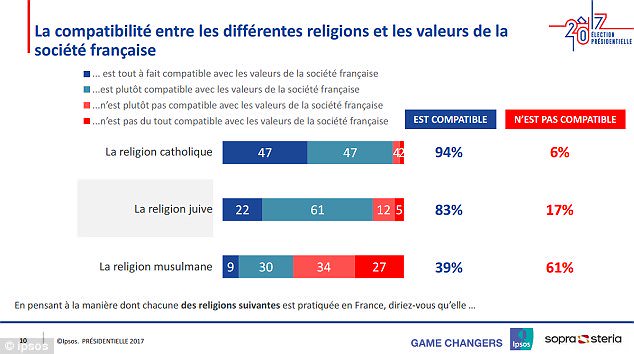
EDITORS NOTE: This column originally appeared in Family Security Matters. Under Creative Commons License: Attribution

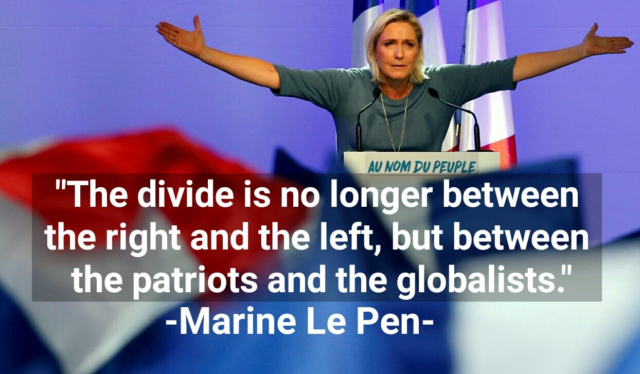

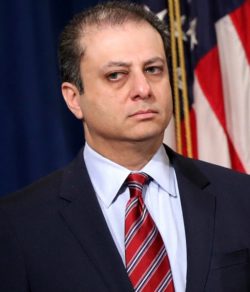
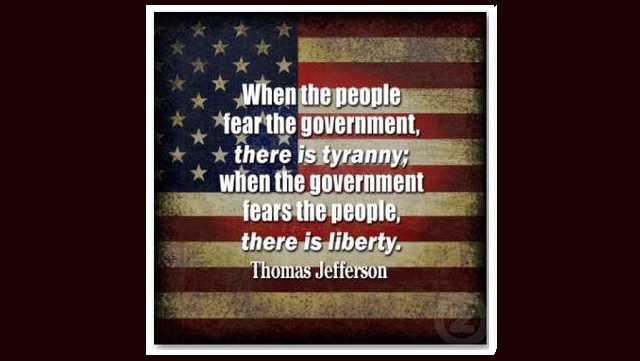
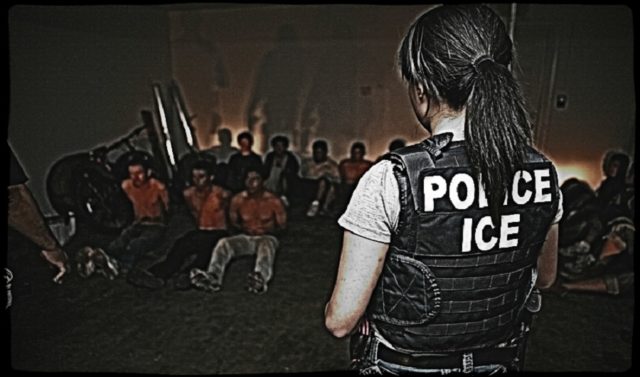 In recent weeks, three liberal district judges… two Obama appointees and one Bush appointee… have taken it upon themselves to write new immigration law by issuing temporary restraining orders against two Trump executive orders restricting the issuance of visas to individuals from six countries in which radical Islamist terrorism is rampant, and where it is impossible to vet any of its citizens. This, in spite of the fact that the Immigration and Nationality Act of 1952, Public Law 82-414 (the McCarran-Walter Act), Section 212(a), enacted two years prior to the Communist Control Act of 1954, provides no less than 31 criteria under which “classes of aliens shall be ineligible to receive visas and shall be excluded from admission into the United States.”
In recent weeks, three liberal district judges… two Obama appointees and one Bush appointee… have taken it upon themselves to write new immigration law by issuing temporary restraining orders against two Trump executive orders restricting the issuance of visas to individuals from six countries in which radical Islamist terrorism is rampant, and where it is impossible to vet any of its citizens. This, in spite of the fact that the Immigration and Nationality Act of 1952, Public Law 82-414 (the McCarran-Walter Act), Section 212(a), enacted two years prior to the Communist Control Act of 1954, provides no less than 31 criteria under which “classes of aliens shall be ineligible to receive visas and shall be excluded from admission into the United States.” However, the same is not true of today’s enemies. The bloodthirsty Islamist dictators in the Middle East and the brutal communist madmen in North Korea are all just insane enough to welcome a nuclear war with the West. And while the North Korean leader, Kim Jung Un, has never shown the slightest regard for the well-being of his starving people, the leaders of al Qaeda and ISIS are just crazy enough to think that death is their greatest earthly reward… not to mention the seventy-two virgins that await each of them in Paradise.
However, the same is not true of today’s enemies. The bloodthirsty Islamist dictators in the Middle East and the brutal communist madmen in North Korea are all just insane enough to welcome a nuclear war with the West. And while the North Korean leader, Kim Jung Un, has never shown the slightest regard for the well-being of his starving people, the leaders of al Qaeda and ISIS are just crazy enough to think that death is their greatest earthly reward… not to mention the seventy-two virgins that await each of them in Paradise.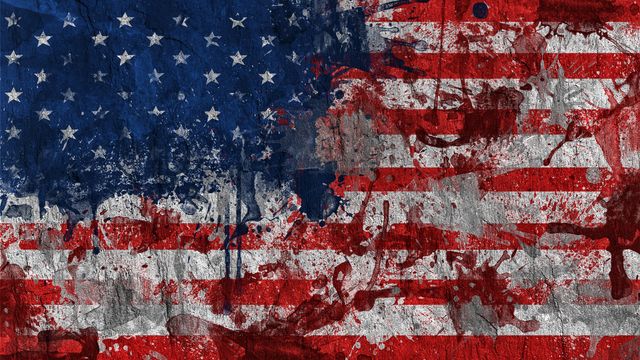
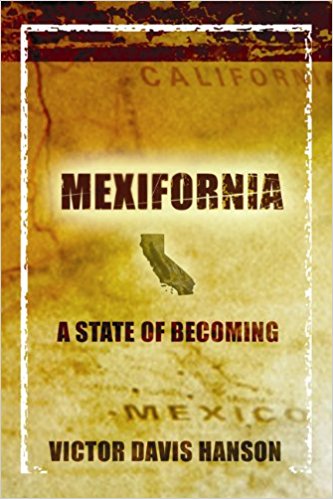 We all know Dick Lamm as the former Governor of Colorado. In that context his thoughts are particularly poignant. Last week there was an immigration-overpopulation conference in Washington, DC, filled to capacity by many of American’s finest minds and leaders. A brilliant college professor named Victor Hansen Davis talked about his latest book, “
We all know Dick Lamm as the former Governor of Colorado. In that context his thoughts are particularly poignant. Last week there was an immigration-overpopulation conference in Washington, DC, filled to capacity by many of American’s finest minds and leaders. A brilliant college professor named Victor Hansen Davis talked about his latest book, “





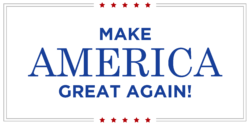 The fallout of this failure is a fiasco for Republicans and, in particular, President Trump. Before another Republican failure finds itself on the doorsteps of 1600 Pennsylvania Avenue, below are some questions for your, and the administration’s, serious consideration. To the following questions we offer no answers. It is the job of those in official positions to have solutions, and act on them urgently.
The fallout of this failure is a fiasco for Republicans and, in particular, President Trump. Before another Republican failure finds itself on the doorsteps of 1600 Pennsylvania Avenue, below are some questions for your, and the administration’s, serious consideration. To the following questions we offer no answers. It is the job of those in official positions to have solutions, and act on them urgently.


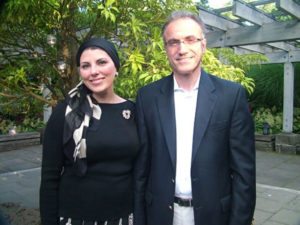


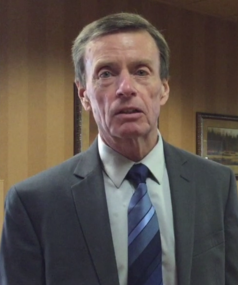




 Incentives explain why markets work best. When you spend your own money on yourself (box 1), you try to maximize quality while minimizing cost. And that drives the businesses that are competing for your money to constantly seek more efficient ways of producing better products at better prices.
Incentives explain why markets work best. When you spend your own money on yourself (box 1), you try to maximize quality while minimizing cost. And that drives the businesses that are competing for your money to constantly seek more efficient ways of producing better products at better prices. For all intents and purposes, instead of buying health care with their own money, they use other people’s money (box 2), a phenomenon known as third-party payer. And because most of their health expenses are financed by either government (thanks to
For all intents and purposes, instead of buying health care with their own money, they use other people’s money (box 2), a phenomenon known as third-party payer. And because most of their health expenses are financed by either government (thanks to 






